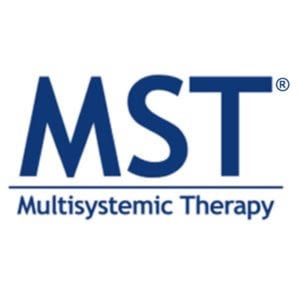
CSI Partners with Netsmart and MST for Improved Outcomes and Evidence-based Results
Seventy percent of youth in juvenile justice systems have at least one mental health condition and at least 20 percent live with a severe mental illness, according to a report by The National Center for Mental Health and Juvenile Justice. Multisystemic Therapy® (MST®), an intensive family- and community-based treatment program, has been proven to keep youth, who have exhibited serious clinical problems, safely at home, in school and out of trouble. A new partnership between Netsmart and MST takes this evidence-based practice into the electronic world, giving MST therapists and clinical supervisors a 360 degree view of their clients, resulting in time and cost savings and improved client outcomes. We caught up with Jill Hoch, Pennsylvania Program Director for CSI, and Andrew Mersman, director of myEvolv™ to learn more about this new relationship and the benefits it could have to other similar organizations.
Explain the relationship between CSI and MST.
Jill Hoch: We have been implementing MST since 1999. We are one of the largest providers of MST therapy. The partnership between CSI, MST and Netsmart started when we became CareRecord™ [electronic health record (EHR)] clients and we wanted to take our use of the EHR further by integrating MST workflows into the CareRecord. We invited MST services to the table and the three of us started talking about this project.

 The value of MST is apparent: 69 percent decrease in youth recidivism, 57 percent decrease in days incarcerated, among other statistics. But is there more?
The value of MST is apparent: 69 percent decrease in youth recidivism, 57 percent decrease in days incarcerated, among other statistics. But is there more?
Hoch: MST is one of only two programs – the other is Fascial Stretch Therapy (FST) – that can be billed to Medicaid because it is recognized nationally as an evidence-based practice with substantiated outcomes.
Who is best served by MST?
Hoch: While there have been adaptations, MST is designed for at-risk adolescents between 12 to 17-and-a-half years old. You are looking at consumers who are aggressive, use drugs and alcohol or are truant, for example. These kids are so out of control that their families cannot handle them. Prior to MST, the primary intervention was to remove these youth from their homes and send them to placement. But eventually the adolescent would return to the same environment. MST says if the adolescent is coming back to that same environment, you cannot fix the kid without also fixing the system – the family unit and environment. The goal with MST is to keep these kids in their homes.
What are the core advantages of putting MST into an EHR?
Hoch: This is the wave of the future. As CSI gravitated toward a fully electronic system, we wanted the model on the system so we wouldn’t have to interrupt the clinical workflow. Now, everything is at our fingertips. Andrew Mersman: We also know that putting MST in the CareRecord will drive better clinical care and a better staff experience. With this, MST therapists can have one source – a central database – for all the information they need to properly coordinate care for these youth.
Is there any hard return on investment?
Hoch: While we don’t have data at the moment, we are confident that the MST offering for the CareRecord increases user productivity. We also benefit from the reporting functions. Our internal auditor uses the system a lot to ensure bills are not duplicated or miscoded before submission. At this point, we are at zero returned claims.
Talk to the role healthcare IT plays with regards to treatment today.
Hoch: I currently supervise providers in New Jersey, Maryland and Pennsylvania. Now, I can log into the system and look at everyone’s case loads and records. It saves time and increases accountability.
How do you see technology impacting care delivery over the next five years?
Mersman: I think it will change the model of delivery. Individuals that are growing up in the digital age will require greater use of technology and providers will have to adapt.
Powered by a Netsmart CareRecord™, the MST offering for myEvolv™ is a quickly-implemented, scalable solution available in stand-alone form for organizations offering solely MST treatment. Organizations that purchase or already utilize Netsmart’s myEvolv CareRecord and also license the MST methodology can receive access to MST forms and clinical workflow automatically, once their MST license is verified.
Learn more at www.ntst.com or call 800.472.5509.
